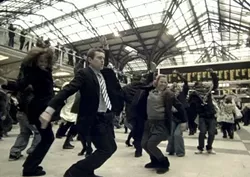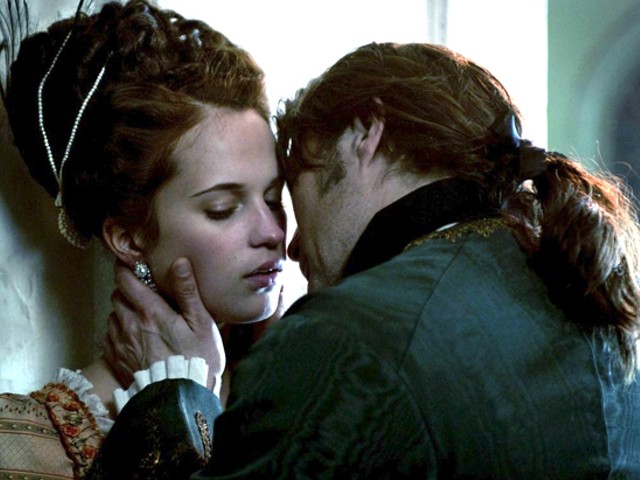British Television Advertising Awards | B
First socialized medicine, classic rock 'n' roll, and Oscar-winning actors. Now television advertising.
Must the English best us in everything?
Watching 90 minutes of British commercials reveals two things about our former colonial masters: 1) they express far more artistry and innovation in their advertising than we do, and 2) they suffer from the same social insecurities and lapses in confidence that Americans indulge in. Will I fit in? Am I attractive enough? What do my colleagues think about me? It seems that no matter where you live, the advertising industry will find a way to zero in on your foibles and neuroses.
But getting back to the first point: The 2012 British Television Advertising Awards program once again makes clear the banality of American TV ads. Whereas our advertising is relentlessly sales-driven, presenting products to the broadest possible audience under the most risk-free circumstances, the Brits are exposed to displays of aesthetic daring, shameless black humor, and even deliberate acts of provocation.
For instance, a health services ad for safe sex (i.e. condom use) takes the clichéd statement "when you sleep with people you sleep with their past" and spins it into a disturbingly effective kaleidoscope of past lovers as Leona Lewis croons "The First Time I Ever Saw Your Face."
It's actually the public service announcements that most distinguish British advertising from their U.S. counterparts. Instead of the formulaic, on-the-nose and pedantic pro bono work you find on late-night American cable, British advertisers seem to have accepted their assignments as a true artistic challenge, fashioning lovely, arresting and highly dramatic treatments for cancer research, mental health and organizations like Save the Children.
This same elevated sense of aesthetics can be found in many of their mainstream ads as well. While there are, undoubtedly, top-notch American ads out there (the best tend to play during the Super Bowl or on the Web), it's undeniable that British advertising, by and large, displays more wit, style and storytelling savvy (not to mention a proclivity for bared butt cheeks). While American ads seem disposable and determined to sell-sell-sell, British ads seem intent on being remembered beyond their one-minute running time.
An ad for Harvey Nichols women's evening wear is particularly unforgettable, as disheveled party girls stumble home to a piano treatment of Cat Steven's "Morning Has Broken." The ad was part of their clever "Walk of Shame" campaign.
The British ad industry's technological prowess also comes through in an impressive black-and-white Audi commercial that wows with both its digital images and snazzy execution, while the online betting site SkyBet, of all things, features a nightmarish montage of surreal images to deliver its message of excitement.
Despite the creativity on display, there's no getting around that this a compendium of commercials, not short films, and their resonance only goes so far. Your tolerance for advertising must be high indeed to invest the time to watch the endless succession of pitches and pleas for business. Perhaps it's best to view the program as an interesting cultural experience, one that reveals subtle insights about the British psyche.
For one, they seem just as susceptible to sentimentality as their Yankee brethren. A soulful Kentucky Fried Chicken ad probably delivers the program's biggest WTF moment, as English families of every color and economic persuasion gather together for dinner in home-movie-style tableaus.
Equally interesting is the ever-present tug-of-war between urban and pastoral living, and the friction between old and new Europe. Ads that trade in continental cool (as represented by hip ads for Stella Artois, Heineken, etc.) feature retro-chic, multicultural models while simple country living (ads for cider, chips and the like) boast humorously red-faced, pudgy actors that twinkle with salt-of-the-earth virtues. I guess it's their version of the Red State-Blue State dichotomy.
Showing at 7 and 9:30 p.m. Friday-Saturday, Nov. 16-17, and at 2 and 4:30 p.m. Sunday, Nov. 18, at the Detroit Film Theatre, inside the Detroit Institute of Arts, 5200 Woodward Ave., Detroit; 313-833-7900; dia.org.






